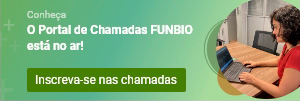The main aim of the project Concerted Strategy to Tackle Ethnoenvironmental Emergencies in the Brazilian Amazon – Rapid RESCUE Brazilian Amazon is to operate within Amazon-region communities that saw their vulnerabilities heightened during the COVID-19 pandemic. The focus is on local populations—traditional, riverine, smallholder and indigenous communities affected by deforestation, land-grabs, food insecurity and other chronic problems.
The project’s activities factor in the geographical specificities and the sociocultural diversity of each benefitted community. There are four focal areas:
Yanomami Territory: (1) Build solutions for food security and child malnutrition at the IT and the indigenous communities of the Middle and Upper Negro River; (2) Generate analyses and detailed information about illegal mining going on in the Yanomami IT.
Xingu Protected Area Corridor: (1) Buttress the Xingu+ Network’s communication strategy, a civil-society initiative that works toward the social organization of indigenous and riverine populations in the region, protecting their health, territory and rights; (2) Foster tighter bonds among indigenous and riverine organizations in the Xingu Corridor with a view to better defending their territories and rights and promoting the welfare of all Xingu peoples; (3) Enable forest-fire monitoring, prevention and mitigation in the Xingu Indigenous Territory (XIT), and (4) Emergency actions in these communities during the COVID-19 pandemic.
Western Pará Region: (1) Consolidate and expand forest seed collection and restoration efforts, with the provision of technical and material assistance to indigenous and traditional communities; (2) Expand and structure native beekeeping processes; (3) Provide training and consultancy to the administrators, managers and associates of the cooperatives and members of associations; (4) investments in the Forest Economy Ecocenter, a socioeconomic opportunities platform geared towards sustainable forest management, and the processing, storage and commercialization of production-related services, and (5) Strengthening of community-based tourism initiatives.
Region of the Amazonian Gateway in Mato Grosso: (1) Diversification across 150 hectares of land devoted to organic farming and agroforestry; (2) Diversification of sales channels; and (3) Provision of mentorship and monitoring on 10 community projects.
The project is financed by the Non-Governmental Organization Re:Wild, which uses European Union resources to support biodiversity protection and restoration. FUNBIO is operational manager of the project and the actions will be designed and executed by the project’s partners: Instituto Socioambiental (ISA), Instituto Centro de Vida (ICV) and Projeto Saúde e Alegria (PSA). With a timeframe of 18 months, the initiative covers the states of Amazonas, Mato Grosso and Pará.
StatusIn Progress |
BiomeAmazon |


